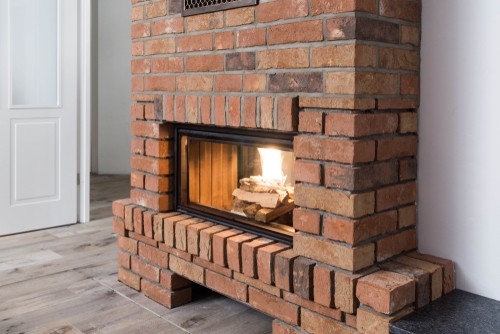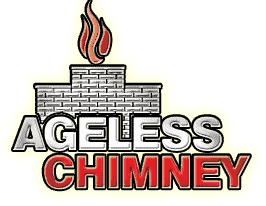Chimney Repair in Levittown, NY.
What our clients say




View our work
Browse all Services
contact us
Masonry Matters: 5 Signs You Need to Contact a Levittown, NY Chimney Repair Company to Restore Your Chimney's Masonry

Quality Chimney Masonry Repair Services in Nassau County
Ageless Chimney is your trusted partner for chimney repair in Levittown, NY. We offer comprehensive chimney repair services in Nassau County, including masonry repair. Our team of professionally trained, fully certified, and highly skilled masons specializes in restoring chimneys, and take great pride in delivering top-quality craftsmanship to our clients.
Whether you need minor repairs or a complete chimney restoration, Ageless Chimney has the expertise you can count on to handle all of your needs. To find out how we can restore your chimney to its former glory, don’t hesitate to call us at 516-795-1313.
Owner Operated
Because all jobs are handled by an owner, you can rest assured that your project will command the attention it deserves.
Free Estimates
Great service at the best price. We will not be undersold. Our estimates are FREE and we will beat any written estimate.
24-Hour Emergency Service
Ageless Chimney is one of a few chimney companies to offer TRUE 24-hour emergency service should you need it.

5 Signs You Need to Contact a Levittown, NY Chimney Repair Company to Restore Your Chimney’s Masonry
If you’re experiencing issues with your chimney’s masonry, it’s crucial to address them promptly to ensure the safety, functionality, and aesthetic appeal of your chimney system. The team of skilled professionals at Ageless Chimney specializes in chimney repair services in Levittown, NY, including masonry repair. Our expert masons provide comprehensive solutions that will restore the integrity and beauty of your chimney. With nearly 20 years of experience and a commitment to customer satisfaction, you can count on us to handle all of your chimney repair needs.
If you’re experiencing any of the following issues with your chimney’s masonry work, don’t delay; contact Ageless Chimney right away.
- Cracked or Damaged Masonry: If you notice cracks, chips, or any form of damage on your chimney’s masonry, it’s a clear sign that repair is necessary. Crumbling mortar or loose bricks can compromise the structural integrity of your chimney, leading to safety hazards. Our experienced technicians will assess the damage and provide the appropriate repairs to restore your chimney’s stability.
- Leaks or Water Damage: Water intrusion can cause significant damage to your chimney – and your Nassau County home. Stains on the ceiling or walls near the chimney, mold growth, or a damp smell in your home indicate water penetration. Our chimney repair professionals will identify the source of the leak, repair any damaged components, and ensure proper waterproofing to prevent future issues.
- Poor Draft or Smoke Backflow: If you’re experiencing difficulties with smoke properly venting from your fireplace or stove, it may be due to a chimney blockage or draft problem. A malfunctioning chimney can lead to smoke backflow, which can be hazardous to your health. The experts at Ageless Chimney will inspect your chimney, clean any obstructions, and restore the proper draft for efficient ventilation.
- Damaged Chimney Crown: The chimney crown acts as a protective barrier against water and external elements. Cracked or deteriorated chimney crowns can allow water to seep into the chimney structure, causing extensive damage. Our skilled technicians will repair or replace the chimney crown, ensuring optimal protection for your chimney.

For Expert Masonry Repair, Contact Nassau County’s Premier Chimney Repair Experts
When it comes to chimney repair services in Levittown, NY, Ageless Chimney is the reliable choice. Our dedicated team is committed to delivering exceptional craftsmanship and outstanding customer service. With our comprehensive chimney repair solutions, you can count on us to restore your chimney’s masonry, ensuring its functionality and longevity. For top-quality chimney repair services call us today at 516-795-1313. Let the pros at Ageless Chimney help you restore the integrity and beauty of your chimney.
Have a question?
The building firm, Levitt & Sons, headed by Abraham Levitt and his two sons, William and Alfred, built four planned communities called “Levittown”, in New York, Pennsylvania, New Jersey, and Puerto Rico; the Levittown in New York was the first. Additionally, Levitt & Sons’ designs are featured prominently in the older portion of Buffalo Grove, Illinois; Vernon Hills, Illinois; Willingboro Township, New Jersey; the Belair section of Bowie, Maryland; and the Greenbriar section of Fairfax, Virginia.
The Levitt firm began before World War II, as a builder of custom homes in upper middle-class communities on Long Island. During the war, however, the home building industry languished under a general embargo on private use of scarce raw materials. William “Bill” Levitt served in the Navy in the Seabees – the service’s construction battalions – and developed expertise in the mass-produced building of military housing using uniform and interchangeable parts. He was insistent that a postwar building boom would require similar mass-produced housing, and was able to purchase options on large swaths of onion and potato fields in undeveloped sections of Long Island.
Returning to the firm after war’s end, Bill Levitt persuaded his father and brother to embrace the utilitarian system of construction he had learned in the Navy. With his brother, Alfred, who was an architect, he designed a small one-floor house with an unfinished “expansion attic” that could be rapidly constructed and as rapidly rented to returning GIs and their young families. Levitt & Sons built the community with an eye towards speed, efficiency, and cost-effective construction; these methods led to a production rate of 30 houses a day by July 1948.They used pre-cut lumber and nails shipped from their own factories in Blue Lake, California, and built on concrete slabs, as they had done in a previous planned community in Norfolk, Virginia. This necessitated negotiating a change in the building code, which prior to the building of this community, did not permit concrete slabs. Given the urgent need for housing in the region, the town agreed. Levitt & Sons also controversially utilized non-union contractors in the project, a move which provoked picket lines. On the other hand, they paid their workers very well and offered all kinds of incentives that allowed them to earn extra money, so that they often could earn twice as much a week as elsewhere. The company also cut out middlemen and purchased many items, including lumber and televisions, directly from manufacturers. The building of every house was reduced to 26 steps, with sub-contractors responsible for each step. His mass production of thousands of houses at virtually the same time allowed Levitt to sell them, with kitchens fully stocked with modern appliances, and a television in the living room, for as little as $8,000 each (equal to $92,721 today), which, with the G.I. Bill and federal housing subsidies, reduced the up-front cost of a house to many buyers to around $400 (equal to $4,636 today).
Learn more about Levittown.Local Resources
Useful links for Levittown, NY
Useful Links
Here are some chimney-related links:
